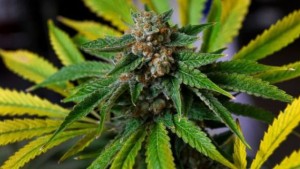 The 39th regular meeting of the conference of the heads of government of the Caribbean Community was held on July 4-6, in Montego Bay, St James. Already there were mixed views about the conference and ganja. There is a view that the leaders are interesting in “dismantling prohibition” and another that “no room yet for trade in recreational marijuana”.
The 39th regular meeting of the conference of the heads of government of the Caribbean Community was held on July 4-6, in Montego Bay, St James. Already there were mixed views about the conference and ganja. There is a view that the leaders are interesting in “dismantling prohibition” and another that “no room yet for trade in recreational marijuana”.
The issue is not just about recreational ganja smoking but how to make money in applying science to the cannabis plant and to develop a range of medicinal ganja products that can be exported.
We must begin to understand what is happening in the world and take brave positions. There is an increasing world of international ganja trade. What are we waiting for? At the time of writing there are 10 states and Washington, DC, that legalised marijuana for recreational use. According to observers, though the weed is illegal at the Federal level, Donald Trump, president of the United States, appears not to be interested in any kind of war against marijuana.
Canada began trailblazing research activities from the early 1970s to 2000s with an interest to transform both the domestic and international regimes on drugs. Newspaper reports inform that Canada is the first wealthy country to legalise marijuana (June 21, 2018). The legalisation of cannabis in Canada has unleashed one of the biggest economic revolutions in that country. It is estimated that by 2025 the industry will worth C$57 billion.
There is a challenge to meet the current demand opening opportunities for countries like Jamaica to produce and export safe marijuana for medical production. The Canadian cannabis producers set their sights to dominate the global cannabis market as countries around the world legalise medical marijuana. Presently, countries such as the Czech Republic, Germany, Australia, and New Zealand are some of the the ones on the growing list of countries exporting safe and legal cannabis to Canada.
Uruguay was the first country to legalise the use of cannabis in 2013 covering the entire chain from plants to purchase. In 2017 the International Cannabis Corporation produced the country’s first batch of medicinal marijuana for export. In the following year the Government of Australia announced that it was legalising the production of cannabis products for medicinal purposes and for export.
In a similar voice to that of Canada, in later 2018 that country declared its intent to dominate the global medicinal marijuana industry. According to a United Nations report, Britain is the largest exporter of legal cannabis, despite the ban; it shows that the United Kingdom exports 67.7 per cent of the world’s legal cannabis, and the Netherlands 16.4 per cent. GW pharmaceutical produces a cannabis-based medicine Sativex.
Recall the case of the six-year-old Alfie Dingley suffering from epilepsy which can be treated with cannabis oil, but such treatment was not legal in Britain. The medicine was later approved by the British Government. Britain export medicinal marijuana products that are not legal in that society. In the midst of the six-year-old Alfie Dingley controversy, the Food and Drug Administration (FDA) approves another marijuana-based medicine, Epidiolex, for the treatment of “two rare forms of epilepsy that begin in childhood”. The drug is produced by GW pharmaceutical and it had been used successfully by “some parents to treat children with epilepsy”.
Jamaica has been a pioneer in medicinal ganja with products for asthma and glaucoma since the 1970s. What are we waiting on to make use of the opportunity to participate in the legal ganja trade? Caricom needs to develop an informed and progressive consensus on ganja. It would be important to hear Caricom leaders talking about how they will work with ‘like-minded states’ to transform the international drug treaties. More than often the leaders in the region are informed by the fear of big and powerful states as opposed to scientific evidence in making ration decision on the ganja issue.
It is time for the peoples of the region to lead because the leaders appear to be unwilling to take up that task. I am sure that there is already consensus among the people on ganja, what about scientific development for national development?
